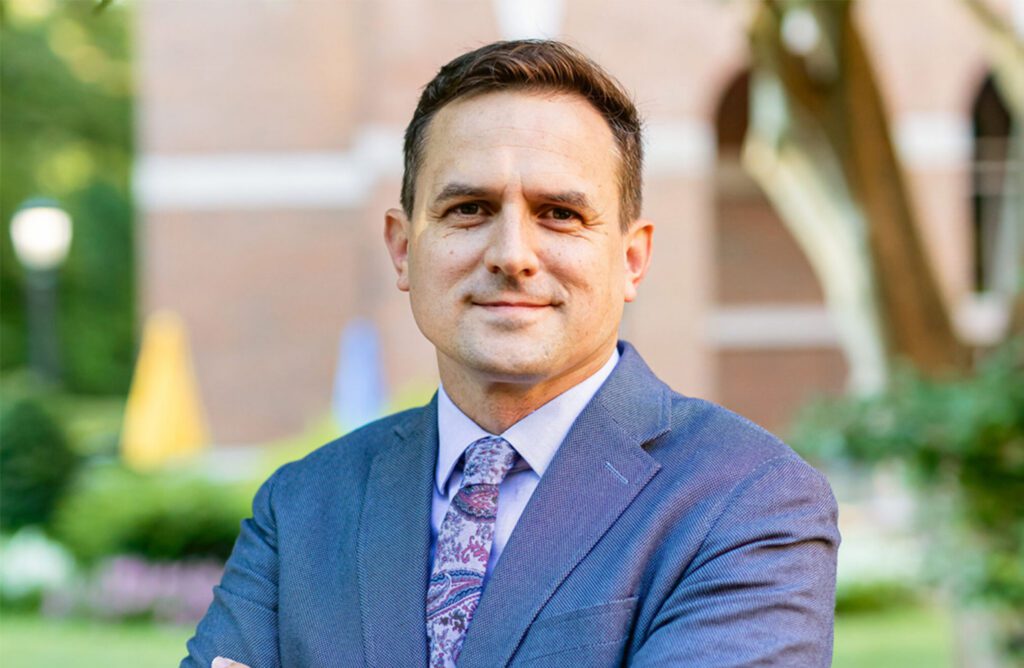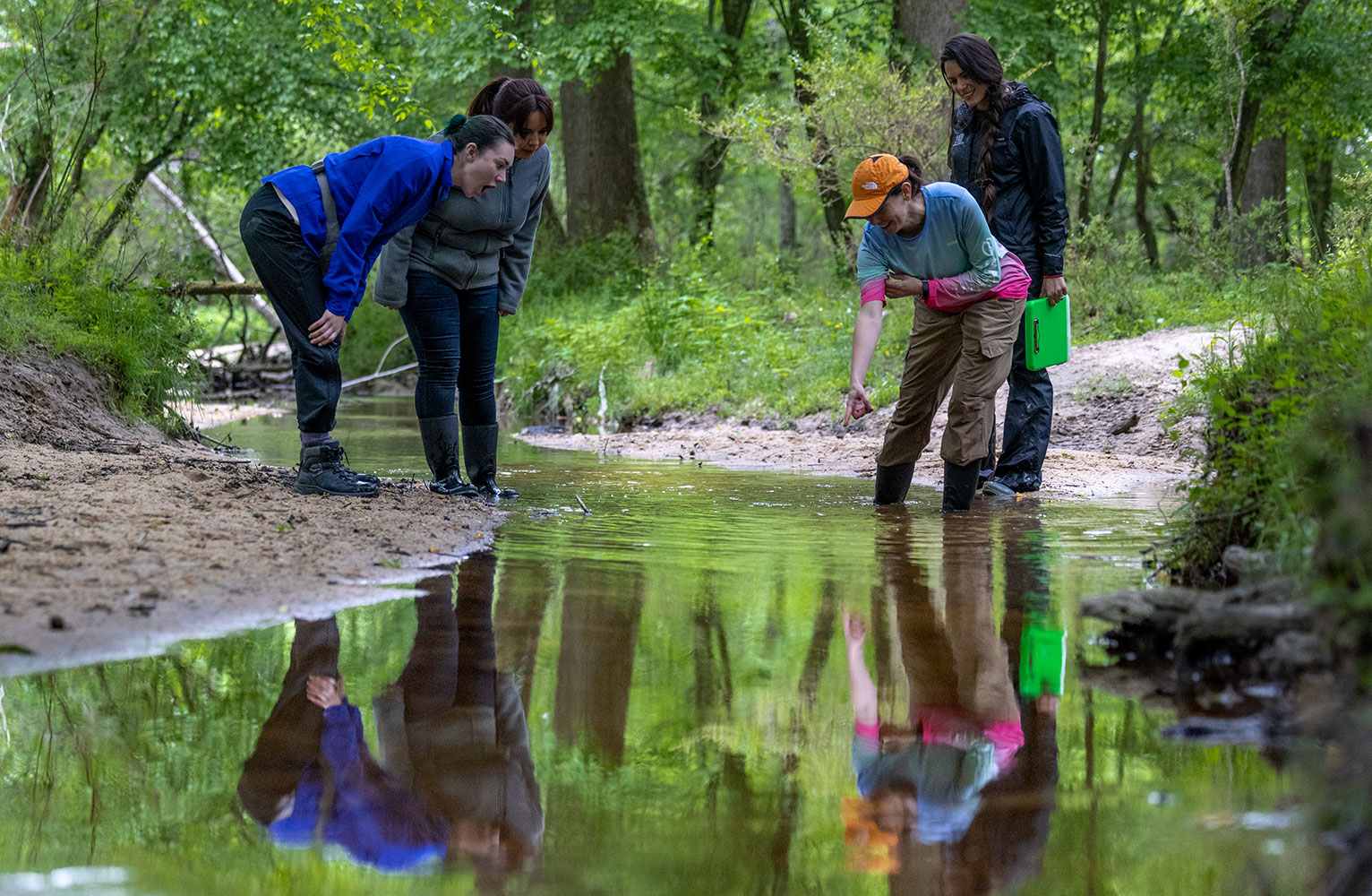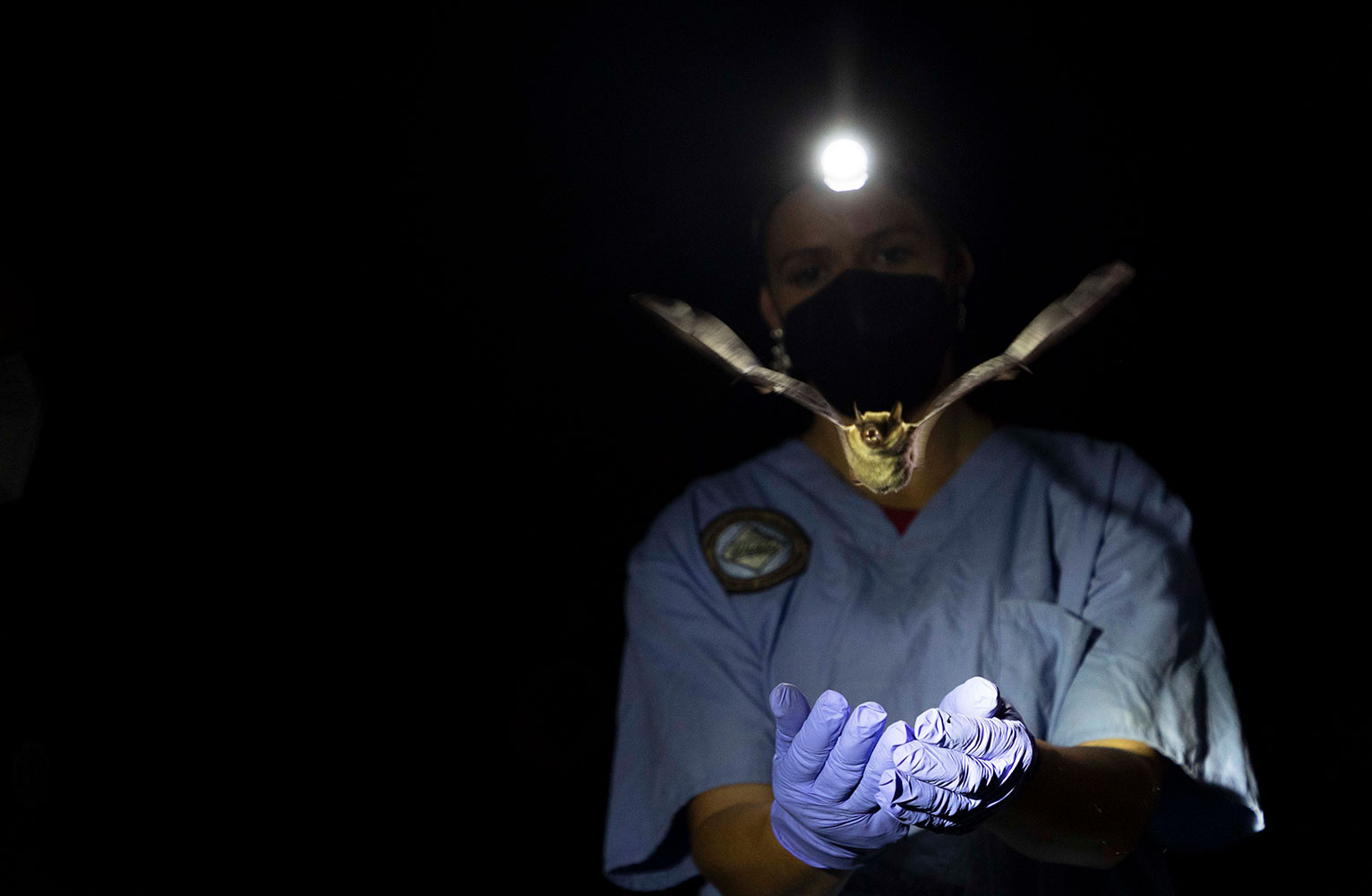 Brad Hendricks – assistant professor of accounting at UNC Kenan-Flagler Business School – is an expert on corporate disclosure, initial public offerings (IPOs) as well as entrepreneurship. So it’s only fitting he’s teaching a new course, Profits, People, Planets and Purpose, designed to inspire undergraduates to pursue business education and opportunities.
Brad Hendricks – assistant professor of accounting at UNC Kenan-Flagler Business School – is an expert on corporate disclosure, initial public offerings (IPOs) as well as entrepreneurship. So it’s only fitting he’s teaching a new course, Profits, People, Planets and Purpose, designed to inspire undergraduates to pursue business education and opportunities.
The course also presents undergrads with a unique experiential learning opportunity to apply theory to practice. Students manage “companies” while competing against their classmates in a simulation.
Hendricks likes to see their competitive natures show: “This generation is so adept at self-learning, experiential learning, that putting them in a gaming scenario that mimics the workplace is a fun, intuitive and risk-free way for them to learn how to make smart business decisions.”
Profits, People, Planets and Purpose is just one example of Hendricks’ impactful teaching at UNC Kenan-Flagler.
“Brad is a top-tier researcher and an amazing teacher,” said Jana Raedy, associate professor and EY Scholar in accounting and senior associate dean of business and operations. “He has not only made a major impact on the academic community with his research, but also has had a significant impact on the business community more broadly. He teaches extremely difficult material in a way that, while challenging the students to think critically, is accessible to them.”
He won the Business School’s 2021-22 Bullard Faculty Research Impact Award, which recognizes a professor each year whose research has had a significant effect on the practice of business. He is the first assistant professor to win it. Additionally, Hendricks received the Glenn McLaughlin Prize for Research in Accounting and Ethics and the Morgan Stanley Prize for Best Paper in 2021.
UNC Kenan-Flagler students also recognized his work in the classroom: He won the prestigious Weatherspoon Teaching Excellence Award in the Master of Accounting (MAC) Program in 2016 and again in 2022.
“Teaching really matters here at UNC Kenan-Flagler. There’s a high value placed on it, and I do the best I can. I am glad that students find such value in my class, despite its reputation for also being the most difficult class in the MAC Program,” said Hendricks.
Read the complete Carolina Story
Related Stories

 Brad Hendricks – assistant professor of accounting at UNC Kenan-Flagler Business School – is an expert on corporate disclosure, initial public offerings (IPOs) as well as entrepreneurship. So it’s only fitting he’s teaching a new course, Profits, People, Planets and Purpose, designed to inspire undergraduates to pursue business education and opportunities.
Brad Hendricks – assistant professor of accounting at UNC Kenan-Flagler Business School – is an expert on corporate disclosure, initial public offerings (IPOs) as well as entrepreneurship. So it’s only fitting he’s teaching a new course, Profits, People, Planets and Purpose, designed to inspire undergraduates to pursue business education and opportunities.

